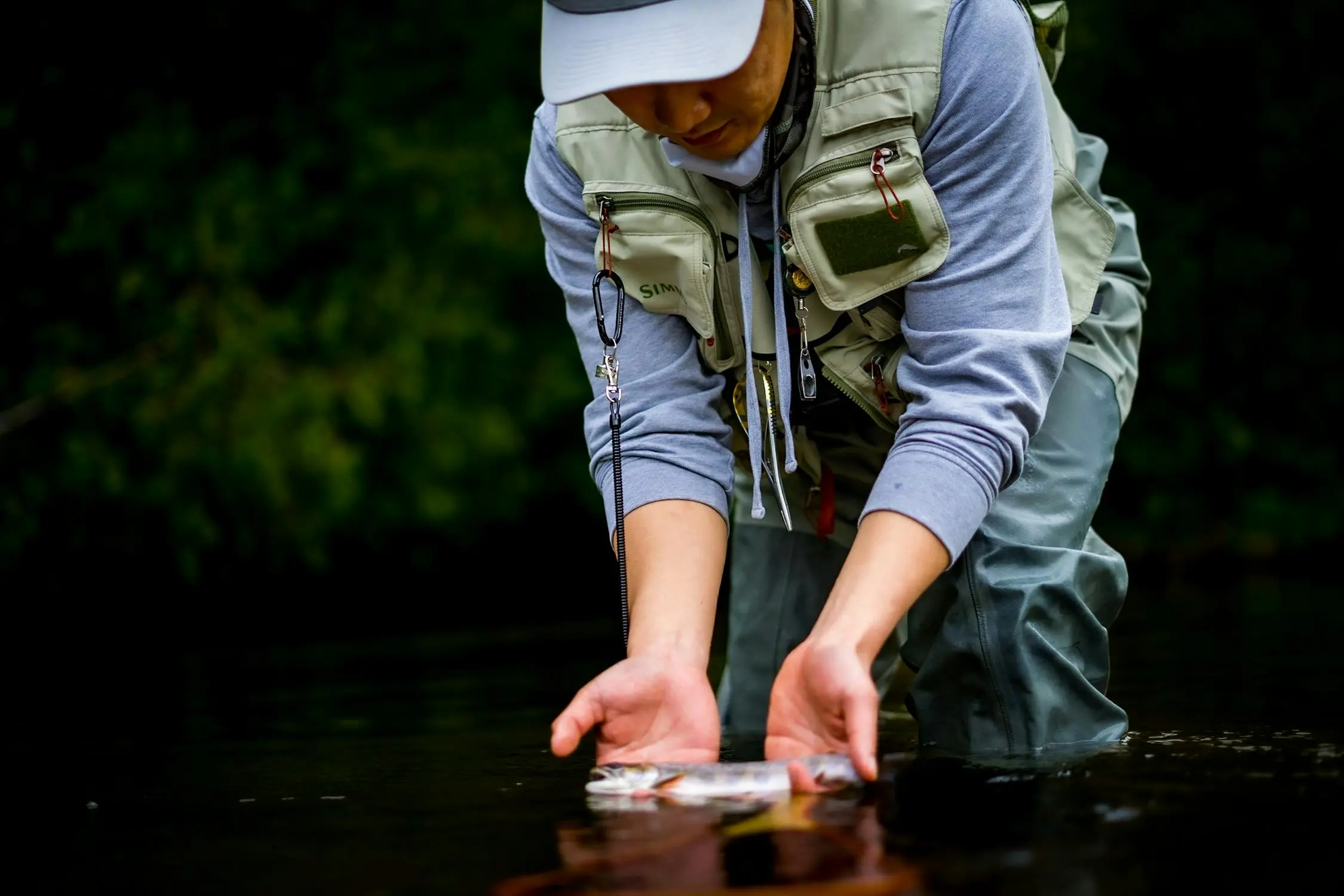Indicator Nymphing - Indicators
 Image Credit: Caleb Park on Pexels
Image Credit: Caleb Park on Pexels
Comprehensive Guide to Strike Indicators in Fly Fishing
Strike indicators are essential tools in fly fishing, particularly when nymphing. They serve as visual cues, signaling when a fish takes the submerged fly. Various types of strike indicators are available, each with unique characteristics, advantages, and disadvantages. Understanding these can help anglers choose the most suitable indicator for different fishing scenarios.
Types of Strike Indicators
- Yarn Indicators
- Foam Indicators
- Bubble Indicators
- Stick-On Foam Indicators
- Cork Indicators
1. Yarn Indicators
Yarn indicators are made from buoyant, brightly colored yarn attached to the leader.
Pros:
- Highly sensitive to subtle strikes.
- Minimal water disturbance upon landing.
- Easily adjustable on the leader.
Cons:
- Requires floatant application to maintain buoyancy.
- Less visible in turbulent water.
Example:
- New Zealand Strike Indicator: A popular yarn indicator system known for its sensitivity and minimal impact on water.
For a detailed overview of yarn indicators, watch this video:
2. Foam Indicators
Foam indicators are lightweight and come in various shapes and sizes.
Pros:
- Highly buoyant, suitable for heavy nymphs.
- Durable and reusable.
- Easy to attach and adjust.
Cons:
- Can create a splash upon landing, potentially spooking fish.
- May be less sensitive to subtle strikes.
Example:
- Air-Lock Strike Indicators: Known for their ease of use and adjustability.
Learn more about foam indicators in this video:
3. Bubble Indicators
Bubble indicators are hollow plastic spheres that attach to the leader.
Pros:
- Highly visible in various water conditions.
- Excellent buoyancy, ideal for heavy rigs.
- Durable and long-lasting.
Cons:
- Can cause significant water disturbance upon landing.
- Less sensitive to delicate strikes.
Example:
- Thingamabobber: A widely used bubble indicator favored for its visibility and buoyancy.
For insights into bubble indicators, watch this video:
4. Stick-On Foam Indicators
Stick-on foam indicators are adhesive-backed foam patches that attach directly to the leader.
Pros:
- Quick and easy to apply.
- Minimal water disturbance.
- Adjustable by adding or removing layers.
Cons:
- Single-use; not reusable.
- May not stay in place in fast currents.
Example:
- Palsa Pinch-On Indicators: Known for their simplicity and ease of use.
Discover more about stick-on foam indicators in this video:
5. Cork Indicators
Cork indicators are traditional strike indicators made from natural cork material.
Pros:
- Highly buoyant and durable.
- Environmentally friendly.
- Provides excellent visibility.
Cons:
- Can be heavier, affecting casting distance.
- May cause more water disturbance upon landing.
Example:
- Hard Toothpick Indicators: Traditional cork indicators secured with a toothpick.
Learn more about cork indicators in this video:
Comparison Table
| Indicator Type | Sensitivity | Buoyancy | Water Disturbance | Adjustability | Durability | Ideal Conditions |
|---|---|---|---|---|---|---|
| Yarn | High | Moderate | Low | High | Moderate | Clear, calm water; spooky fish |
| Foam | Moderate | High | Moderate | High | High | Fast currents; heavy nymphs |
| Bubble | Low | High | High | Moderate | High | Turbulent water; deep runs |
| Stick-On Foam | Moderate | Low | Low | Low | Low | Shallow water; delicate fishing |
| Cork | Moderate | High | Moderate | Moderate | High | Various conditions |
Selecting the appropriate strike indicator depends on various factors, including water conditions, target species, and personal preference. Experimenting with different types can help determine
Get more info by using the following Youtube searches
| Search Term | Thumbnail | Link |
|---|---|---|
| Yarn Indicators | Watch Video | |
| Foam Indicators | Watch Video | |
| Bubble Indicators | Watch Video | |
| Stick on Foam Indicators | Watch Video | |
| Cork Indicators | Watch Video |
The World's Most Complete Fishing Resource
We're building the ultimate fishing encyclopedia—created by anglers, for anglers. Our articles are created by real experienced fishermen, sometimes using AI-powered research. This helps us try to cover every species, technique, and fishing spot imaginable. While we strive for accuracy, fishing conditions and regulations can change, and some details may become outdated or contain unintentional inaccuracies. AI can sometimes make mistakes with specific details like local access points, parking areas, species distributions, or record sizes.
Spot something off? Whether it's an incorrect boat ramp location, wrong species information, outdated regulations, or any other error, please use the "Help Us Improve This Page" section below. Your local knowledge makes this resource better for every angler.
Explore Related Topics
Discover more articles to deepen your knowledge
Curating articles for you...
Create your own Research Page using AI
Try our AI assistant for free—sign up to access this powerful feature




